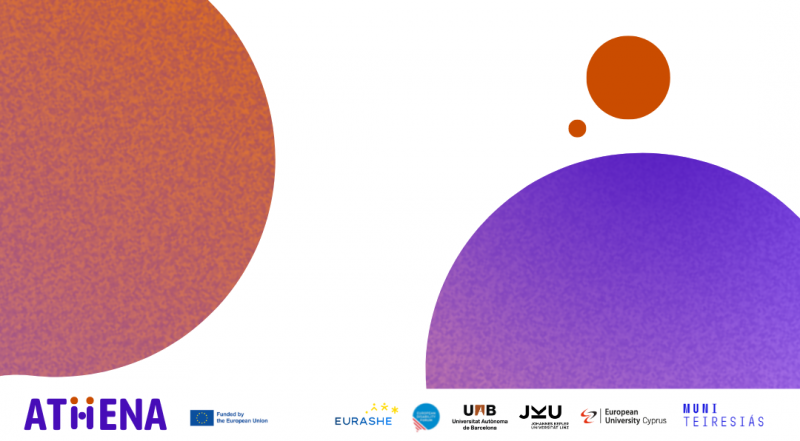
The ATHENA Project aims to bring Accessibility and Design for All into Higher Education by developing recommendations on how to implement curriculum on accessibility across academic disciplines. EDF and ATHENA Project partners have completed the first step of this project through the publication of a transnational report that presents the findings of the first work package of the project. The report will serve as the project’s foundation on which all of the project’s efforts will be based.
This report consists of three main tasks and findings:
1) Identifying higher education domains,
2) Analysing higher education syllabi that incorporated Accessibility and Universal Design,
3) Qualitative analysis of these syllabi
First, the report focused on identifying categories of academic disciplines defined by the report as domains: Education, Arts and Humanities, Social Sciences, Journalism and Information, Business Administration and Law, Information and Communication Technologies, Engineering, Manufacturing and Construction, and Health and Welfare.
Identifying these domains served as the framework for the second task of the report: to analyze higher education curricula and syllabi through keyword searches to identify those that utilize the principles of Accessibility and Universal Design. This analysis revealed patterns in how universities apply Accessibility and Universal Design principles.
While Spain showed a focus on disability and accessibility, Czechia and Austria showed variations in the application of Accessibility and Universal Design principles across domains. The analysis also found that Cyprus displayed variations between curricula and syllabi across domains. These findings highlight the inconsistency of incorporating Accessibility and Universal Design principles into higher education curricula and across academic disciplines and European countries. This variation is further highlighted through the report’s third task: qualitatively analysing how Accessibility and Universal Design principles vary across domains.
Through this analysis, the report revealed that there are significant differences in how domains approach Accessibility and Universal Design. While domains like Education and Arts and Humanities viewed Accessibility and Universal Design through the lens of diversity, human rights, and social inclusion, domains like Health Sciences and Engineering included Accessibility and Universal Design principles through curriculum on technology-enabled
inclusion. Overall, these findings illustrate that Accessibility and Universal Design appear in some universities’ curricula but do so in minimal ways and varied meanings.
With these findings, EDF and ATHENA Project partners will move to the next step of the project: conducting focus groups on each identified domain. These focus groups will consist of experts from each domain, educators and those who specialize in the implementation of university curricula, and users to gain a nuanced perspective on how to best implement Accessibility and Universal Design principles.
By Ashley Jones
- Log in to post comments